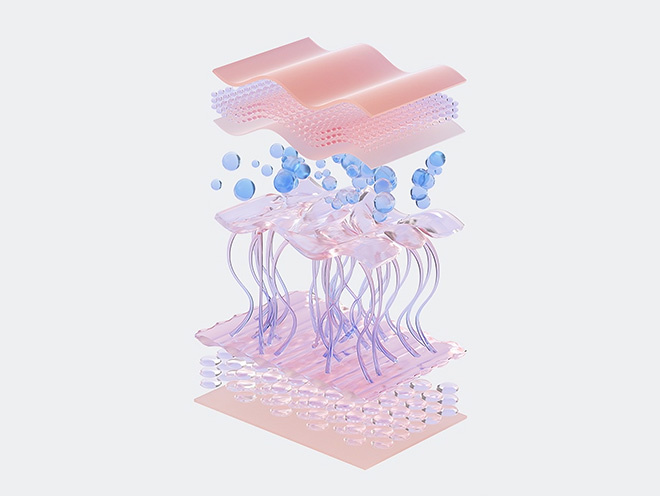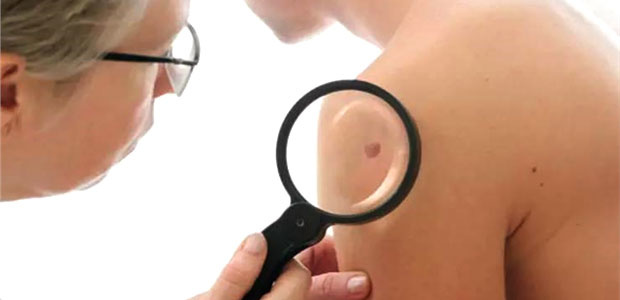 |


What is Skin Cancer?
Skin cancer, or malignant tumors of the skin, are named differently depending on the source of the tumor cells, including the epidermis, skin appendages, soft tissues of the skin, peripheral nerves, melanocytes, cutaneous lymphoid reticulum, and hematopoietic tissue. There is also a subset of metastatic tumors that occur in other tissues that metastasize to the skin. In 2020, there will be a total of approximately 325,000 new cases of melanoma (174,000 men, 151,000 women) and 57,000 deaths (32,000 men, 25,000 women) worldwide.
So can middle and late-stage skin cancer be cured? Minimally invasive techniques with little side effects and trauma can help bladder cancer patients avoid surgical removal, avoid suffering from the pain of traditional radiotherapy, and effectively prolong the survival period.
For more knowledge about cancer,please click online doctors for consultation.




What are the signs and symptoms?
Skin cancer takes a variety of forms. It is seldom painful and may not manifest itself as an ugly lesion. If there is any unusual growth on the skin that does not go away within a couple of weeks, seek medical attention.
The "ABCDE" rule can help you to look out for signs of Skin Cancer:
Asymmetry: When both sides of mole do not look the same.
Border: The edges of a mole are blurry or jagged.
Colour The colour of a mole changes; if it becomes darker than before, or if the colour spreads or goes away, or if more than one colour appears (blue, red, white, pink, purple or grey).
Diameter When a mole is larger than a quarter of an inch in diameter (about the size of a pencil eraser).
Elevation When a mole is raised above the skin and has a rough surface.
You should also watch for these changes to your skin:
A mole that bleeds
A mole that grows fast
A scaly or crusted growth on the skin
A sore that won’t hea
A mole that itches
A spot on your skin that feels rough like sandpaper
For more knowledge about cancer, please click online doctors for consultation.
How is Skin Cancer treated?
All skin cancers should be removed immediately. The cancerous tumours must be destroyed or removed surgically. Sometimes, a small piece of tumour is removed first (skin biopsy) for examination to confirm if it is cancerous. The treatment method will depend on age, general health, the type and size of the cancer, site on the body, personal preference and whether the cancer has spread to other parts of the body. For a large cancer, a skin graft may be necessary. This involves using a layer of the skin from another part of the body. If the cancer is very small and not deep, it may be removed by freezing it. When one is medically unfit for surgery or where surgery might be difficult or disfiguring, radiotherapy may be used. In the case of chemotherapy, the drugs may come in the form of a cream or liquid to be applied directly to the tumour, or as a tablet.
For more knowledge about cancer, please click online doctors for consultation.
How to prevent?
Exposure to the sun’s ultraviolet (UV) rays appears to be the most important factor in the development of skin cancer. Skin cancer is largely preventable when sun protection measures are consistently used. Follow these "safe-sun" guidelines whenever you are in the sun:
Reduce sun exposure, if you can, especially from 10am to 4pm when the sun’s UV ray are the most intense or when the UV index is 3 or more.
Wear a long-sleeved shirt and long pants to protect the skin. Loose-fitting and cotton clothing are cooler.
Wear sunglasses to protect your eyes from the sun. Sun exposure increases your risk of getting cataracts.
Wear a wide-brimmed hat. Wide-brimmed hats help protect your face, neck and ears from the sun.
Use a sunscreen with a sun protection factor (SPF) of at least 15 daily, even on cloudy days.
Remember about reflection: Water, sand, snow and concrete can reflect up to 80% of the sun’s damaging rays.
Avoid tanning salons and sunlamps: These lights emit mostly UVA radiation – up to 2 – 5 times as much as natural sunlight. UVA radiation cause sunburn, premature aging of the skin and skin cancer.
For more knowledge about cancer, please click online doctors for consultation.